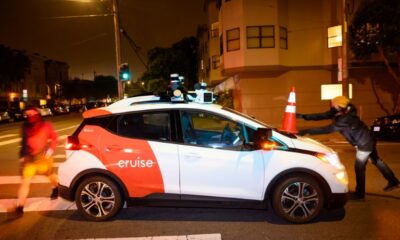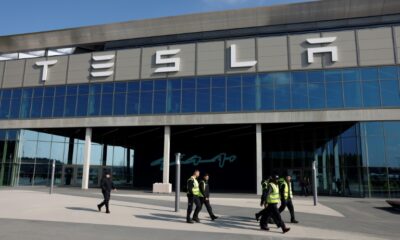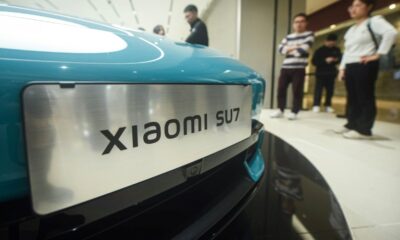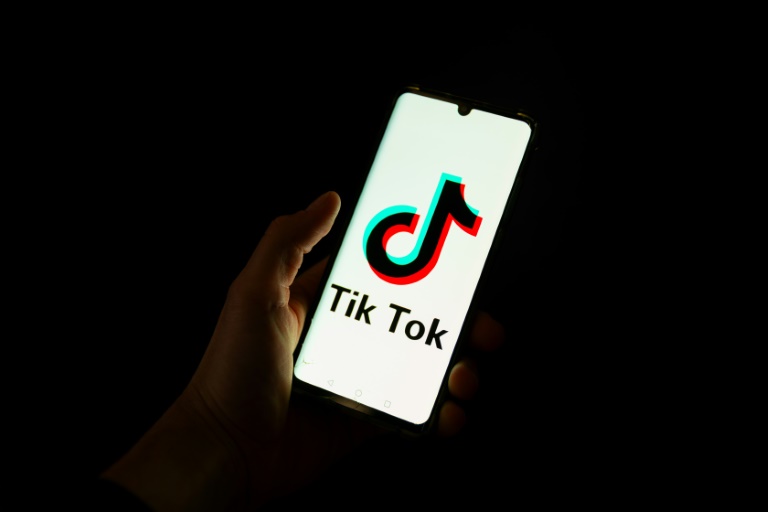The rise of artificial intelligence has forced an increasing number of journalists to grapple with the ethical and editorial challenges posed by the rapidly expanding technology.
AI’s role in assisting newsrooms or transforming them completely was among the questions raised at the International Journalism Festival in the Italian city of Perugia that closes on Sunday.
– What will happen to jobs? –
AI tools imitating human intelligence are widely used in newsrooms around the world to transcribe sound files, summarise texts and translate.
In early 2023, Germany’s Axel Springer group announced it was cutting jobs at the Bild and Die Welt newspapers, saying AI could now “replace” some of its journalists.
Generative AI — capable of producing text and images following a simple request in everyday language — has been opening new frontiers as well as raising concerns for a year and a half.
One issue is that voices and faces can now be cloned to produce a podcast or present news on television. Last year, Filipino website Rappler created a brand aimed at young audiences by converting its long articles into comics, graphics and even videos.
Media professionals agree that their trade must now focus on tasks offering the greatest “added value”.
“You’re the one who is doing the real stuff” and “the tools that we produce will be an assistant to you,” Google News general manager Shailesh Prakash told the festival in Perugia.
– All about the money –
The costs of generative AI have plummeted since ChatGPT burst onto the scene in late 2022, with the tool designed by US start-up OpenAI now accessible to smaller newsrooms.
Colombian investigative outlet Cuestion Publica has harnessed engineers to develop a tool that can delve into its archives and find relevant background information in the event of breaking news.
But many media organisations are not making their own language models, which are at the core of AI interfaces, said University of Amsterdam professor Natali Helberger. They are needed for “safe and trustworthy technology”, he stressed.
– The disinformation threat –
According to one estimate last year by Everypixel Journal, AI has created as many images in one year as photography in 150 years.
That has raised serious questions about how news can be fished out of the tidal wave of content, including deepfakes.
Media and tech organisations are teaming up to tackle the threat, notably through the Coalition for Content Provenance and Authenticity, which seeks to set common standards.
“The core of our job is news gathering, on-the-ground reporting,” said Sophie Huet, recently appointed to become global news director for editorial innovation and artificial intelligence at Agence France-Presse.
“We’ll rely for a while on human reporters,” she added, although that might be with the help of artificial intelligence.
– From Wild West to regulation –
Media rights watchdog Reporters Without Borders, which has expanded its media rights brief to defending trustworthy news, launched the Paris Charter on AI and journalism late last year.
“One of the things I really liked about the Paris Charter was the emphasis on transparency,” said Anya Schiffrin, a lecturer on global media, innovation and human rights at Columbia University in the United States.
“To what extent will publishers have to disclose when they are using generative IA?”
Olle Zachrison, head of AI and news strategy at public broadcaster Swedish Radio, said there was “a serious debate going on: should you mark out AI content or should people trust your brand?”
Regulation remains in its infancy in the face of a constantly evolving technology.
In March, the European Parliament adopted a framework law aiming to regulate AI models without holding back innovation, while guidelines and charters are increasingly common in newsrooms.
AI editorial guidelines are updated every three months at India’s Quintillion Media, said its boss Ritu Kapur.
None of the organisation’s articles can be written by AI and the images it generates cannot represent real life.
– Resist or collaborate? –
AI models feed off data, but their thirst for the vital commodity has raised hackles among providers.
In December, the New York Times sued OpenAI and its main investor Microsoft for violation of copyright.
In contrast, other media organisations have struck deals with OpenAI: Axel Springer, US news agency AP, French daily Le Monde and Spanish group Prisa Media whose titles include El Pais and AS newspapers.
With resources tight in the media industry, collaborating with the new technology is tempting, explained Emily Bell, a professor at Columbia University’s journalism school.
She senses a growing external pressure to “Get on board, don’t miss the train”.

 Business5 months ago
Business5 months ago
 Business4 months ago
Business4 months ago
 Events6 months ago
Events6 months ago
 People4 months ago
People4 months ago
 Events3 months ago
Events3 months ago















